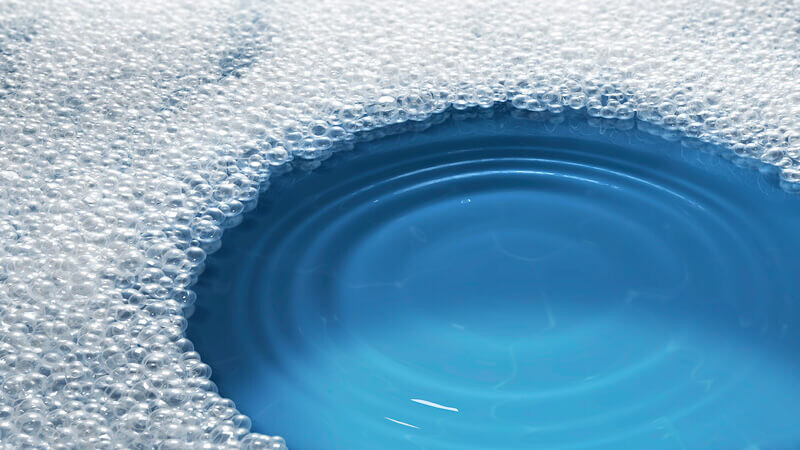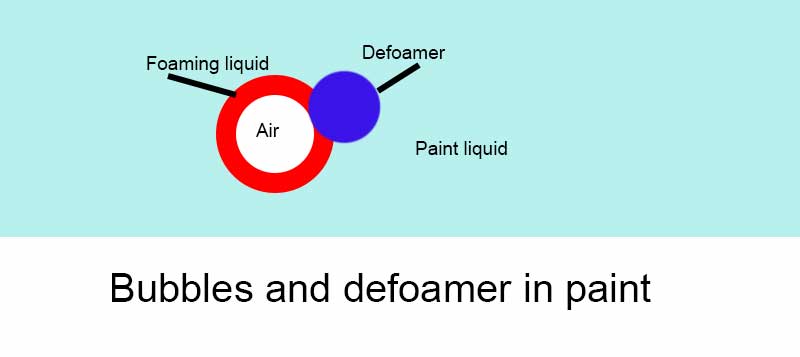The Role of Defoamers in the Chemical and Food Processing Industries
The Role of Defoamers in the Chemical and Food Processing Industries
Blog Article
The Role of Defoamers in Enhancing Product High Quality and Efficiency
Defoamers offer as vital ingredients that alleviate this concern, guaranteeing smoother production workflows while improving the visual and practical characteristics of the final products. The selection of the suitable defoamer can be critical to achieving ideal outcomes, raising vital concerns concerning formula compatibility and efficiency metrics that merit more exploration.
Recognizing Defoamers
Understanding the function of defoamers is vital for maintaining product quality throughout different sectors. Defoamers are chemical ingredients made to reduce and avoid the development of foam in liquid systems, which can detrimentally influence procedures such as mixing, loading, and surface stress. Lathering can lead to inefficiencies, item issues, and endangered visual allure, making defoamers a critical element in manufacturing operations.
In commercial applications, defoamers assist to improve product consistency and stability. The effective usage of defoamers not only guarantees smoother production processes however likewise adds to superior item performance.
Moreover, the choice and formula of a defoamer need to line up with specific application demands, such as compatibility with various other active ingredients, effectiveness under varying temperature and pH conditions, and potential regulative restraints. Inevitably, understanding defoamers' features and their significance in different solutions is critical for enhancing manufacturing and guaranteeing the best quality end items.
Sorts Of Defoamers
Defoamers can be categorized into several types based upon their structure and mechanism of action. The main kinds consist of silicone-based, non-silicone natural, and inorganic defoamers.
Silicone-based defoamers are amongst one of the most effective, mainly as a result of their capacity to spread rapidly on the fluid surface and interfere with foam development. Their unique chemical structure permits superior stability, making them appropriate for high-temperature applications and atmospheres with differing pH levels.
Non-silicone natural defoamers, usually made up of natural oils or fats, are valued for their biodegradability and lower toxicity. These are commonly used in food and beverage applications where safety and security and environmental impact are vital.
Inorganic defoamers, which include compounds like talc or calcium carbonate, act by boosting the thickness of the liquid, consequently reducing foam stability. They are frequently utilized in industrial procedures where compatibility with other products is not a worry.
Each kind of defoamer has unique advantages and restrictions, permitting customized services depending upon the specific frothing concerns run into in different applications. Understanding these distinctions is crucial for optimizing efficiency and achieving wanted product quality.
Applications Throughout Industries
Many sectors take advantage of defoamers to boost product high quality and operational efficiency. In the food and drink market, defoamers are critical in processes such as developing and dairy manufacturing to avoid foam development, which can cause inadequacies and item disparity. By managing foam, manufacturers can ensure better yield and an extra consistent item.
In the pharmaceutical market, defoamers play an essential function in the formulation of liquid medicines, where excessive foam can hamper blending and exact dosing. Their use helps keep the stability of the solutions and promotes smoother manufacturing processes.
The paint and coverings sector additionally depends on defoamers to improve the performance of items during application. By lessening foam, these additives guarantee a smoother surface and boost the aesthetic qualities of the final item.

Benefits of Using Defoamers
While the application of defoamers differs across industries, their benefits regularly improve product high quality and process performance. One significant benefit is the reduction of foam development throughout producing procedures, which can or else result in production delays and variances in product top quality. By reducing foam, defoamers allow a smoother circulation of products, helping with more effective operations and reducing the chance of devices malfunctions.
In addition, using defoamers can improve the look and structure of last items. In markets such as finishings, paints, and food handling, too much foam can jeopardize the visual aesthetics and total high quality, while the appropriate defoamer application ensures an uniform surface and preferable qualities. Defoamers can add to cost financial savings by reducing waste during manufacturing and enhancing the usage of raw materials.

Selecting the Right Defoamer
Choosing the right defoamer is critical for optimizing production procedures and guaranteeing item top quality. The selection of defoamer influences not only the effectiveness of foam control yet also the overall efficiency attributes of the end product. Variables to think about include the sort of application, the chemistry of the solution, and the ecological problems under which the product will be used.
Different sectors might call for right here specific defoamer kinds, such as silicone-based, natural, or polymeric defoamers. Comprehending the compatibility of the defoamer with the main active ingredients is vital to prevent adverse responses that can jeopardize product stability. Furthermore, the defoamer's effectiveness in numerous temperature levels and pH levels must be evaluated to make sure constant efficiency.
Examining the defoamer in small-scale applications can provide valuable understandings right into its performance and suitability. Factor to consider of regulatory conformity, specifically in food, pharmaceuticals, and cosmetics, is extremely important in selecting a defoamer. Inevitably, a complete assessment of these elements will certainly lead to the selection of a defoamer that not just manages foam successfully but likewise boosts the top quality and efficiency of the end product.
Verdict

Finally, defoamers are essential additives that substantially boost item top quality and efficiency across various industries. By efficiently minimizing foam development, these agents not only improve functional effectiveness however additionally add to the aesthetic and practical integrity of products. The critical option and application of defoamers lead to cost financial savings, maximized source usage, and enhanced client fulfillment. Generally, the value of defoamers in industrial processes can not be overemphasized, as they play an essential duty in accomplishing constant and top notch outcomes.
Foaming can lead to inadequacies, item problems, and compromised visual charm, making defoamers an important component in making procedures.

Report this page